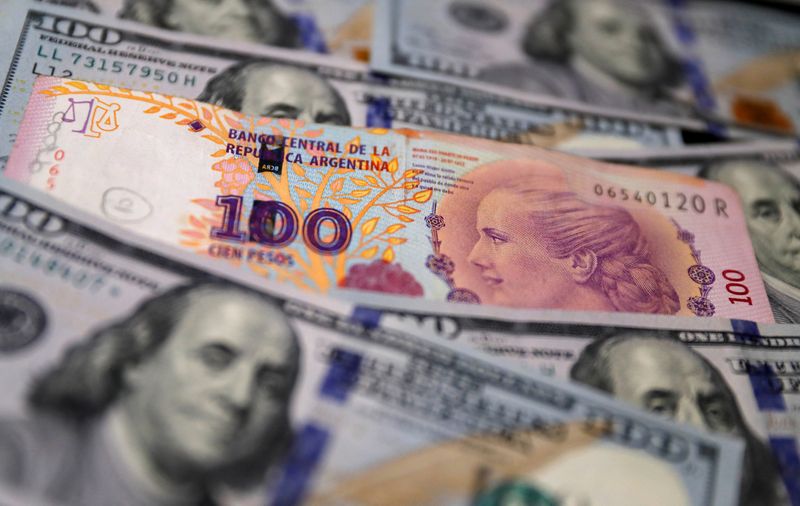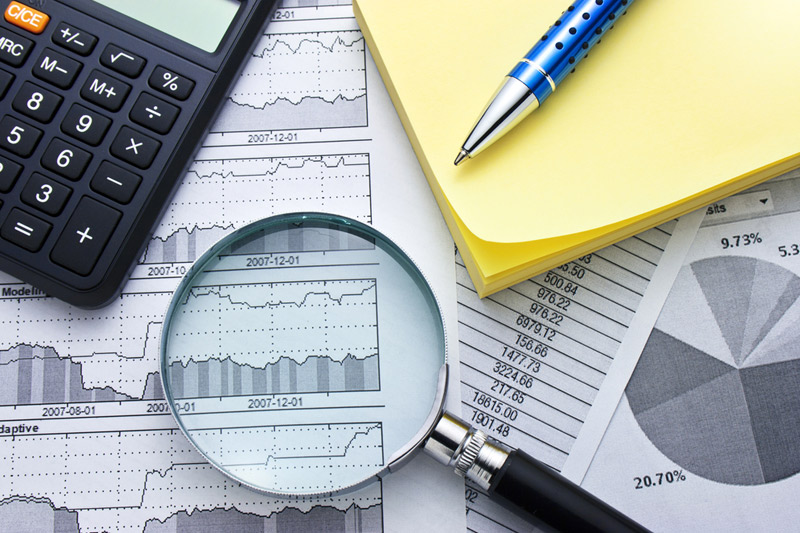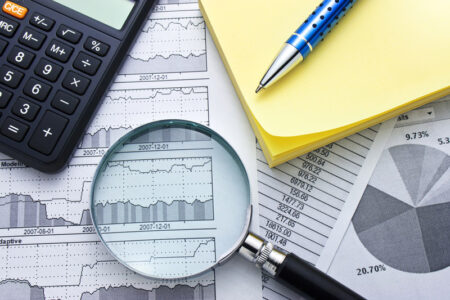By Jorge Otaola
BUENOS AIRES (Reuters) – Argentina’s dollar bonds jumped in early trade on Wednesday and the country’s risk index dropped sharply, with investors cheering the prospect of closer ties between libertarian President Javier Milei and newly-elected U.S. ally Donald Trump.
Overseas listed bonds advanced in thin early trade while the risk index, a measure of the premium investors demand to hold local bonds versus equivalent U.S. debt, dropped to just over 880 basis points, the lowest in five years.
Argentina’s markets have already been on a tear under the pro-market austerity of Milei, a right-wing economist and former TV pundit who shares some the same politics and the brash showman energy of Trump, who won a comeback election on Tuesday.
On the streets of Buenos Aires, many saw Trump’s win as a positive for the South American farm-driven economy.
Milei, who campaigned with a chainsaw as a symbol of his planned spending cuts and often belts out rock songs, has been called “El Loco” – the crazy one. He’s become a global right-wing icon and drawn close to Trump and allies like Elon Musk.
“It seems to me that they are going to get along well,” said Buenos Aires resident Micaela Saracero, 29, referring to Milei and Trump. “In economic terms it could have a great impact on Argentina if they get along between two crazy people.”
Damian Roux, a 23-year-old in Buenos Aires, agreed Trump’s victory in the U.S. election was positive for Argentina.
“I think the relationship with Milei is going to be good, because Milei has had a good ties with Trump and I hope that will favor Argentina, which is what I want most,” he said.
The close ties could help with Argentina’s $44 billion loan program with the International Monetary Fund (IMF), with a new program expected to be discussed next year. The United States has the largest voting power in the Washington-based lender.
However, analysts cautioned Trump’s victory could lead to a deterioration in Argentina’s exchange rate anchor, something Milei has strengthened after years of the currency sliding.

“Argentines have not yet realized it, but a Trump victory (which would mean U.S. tariffs on China and other countries) will put huge depreciatory pressure on the peso,” Goldman Sachs said in a report.
For now, however, local economist Federico Rayes said the domestic markets were more focused on politics and gut instinct. “For now the Argentine bond craze has a very strong political component, and less of an economic foundation,” he said.


